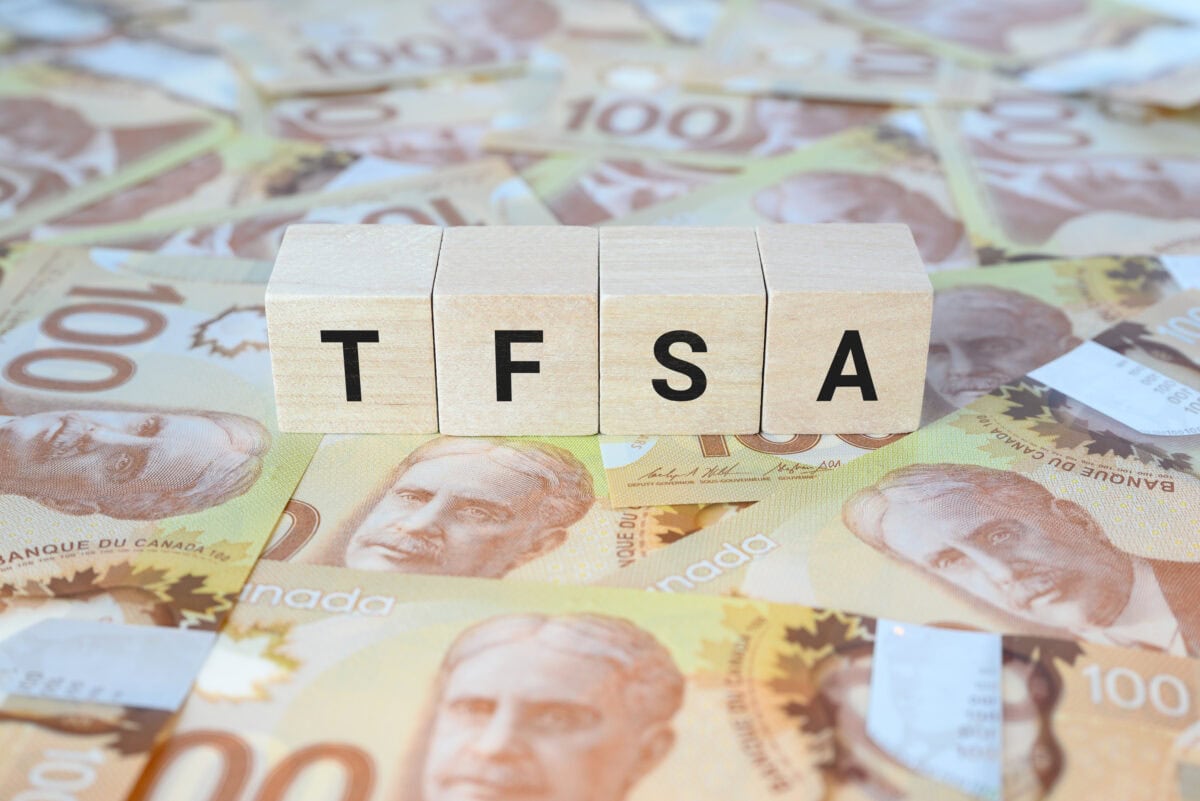Did you know that you can earn large amounts of dividend and interest income and pay no taxes on it?
It’s true!
It’s all thanks to the Tax-Free Savings Account (TFSA). If you were born in 1991 or before and haven’t made TFSA contributions yet, you can contribute up to $95,000 to a TFSA and pay no taxes on the investment proceeds. The flip side of the aforementioned is that if you turned 18 in the last few years and haven’t reaped any returns yet, you can only invest a few thousand dollars in your TFSA.
It is what it is. Nevertheless, anybody can realize large amounts of TFSA income by saving diligently over time — if you’re 33 or older and have substantial savings, you can get started sooner than others. In this article, I will explore how it’s done.
Hold bonds and dividend stocks in your TFSA
The first thing you need to know about TFSAs is what to hold in them. It’s generally recommended that you hold interest-bearing bonds and dividend stocks in your TFSA while leaving stocks that don’t pay dividends in your taxable account. The reason for this is that stocks that pay no dividends aren’t taxed very frequently (if you’re a long-term holder). Dividends and interest, however, are taxed several times per year whether you or not you sell the asset producing them. So, they are in more urgent need of tax sheltering than stocks that do not pay dividends — unless you’re trading frequently, which is not recommended.
How much you could save on bond taxes
You can save an enormous amount of money by holding bonds in a TFSA. Bonds are taxed at your marginal tax rate, and no tax credits are applied to them. If you hold a $95,500, 5%-yielding bond in a taxable account and you have a 50% marginal tax rate, you pay a $2,375 tax on the $4,750 you receive in interest. That’s half your return gone right there. Hold the same bond in a TFSA, and you pay no taxes whatsoever (provided you have the required contribution room). Now, that’s a win.
How much you could save on dividend income
You can save significant sums of money by holding your dividend stocks in a TFSA. The effect is lesser here than with bonds because dividend stocks have tax credits applied to them when held in taxable accounts. Still, the TFSA saves dividend investors money.
Let’s imagine, for the sake of argument, that you held $95,000 worth of Enbridge Inc (TSX:ENB) stock in a taxable account. That stock yields 6.735%, so the position pays out $6,366 in dividends per year.
| COMPANY | RECENT PRICE | NUMBER OF SHARES | DIVIDEND | TOTAL PAYOUT | FREQUENCY |
| ENB | $54.64 | 1,730 | $0.92 per quarter ($3.68 per year). | $1,591.60 ($6,366 per year). | Quarterly |
Now, let’s further assume that you live in Ontario and your employment income is above $250,000, giving you an approximately 50% marginal tax rate. What would happen if you held your Enbridge shares in a taxable account is as follows:
- The $6,365 in dividends would be “grossed up” to $8,784.
- Your pre-credit tax would be calculated as $4,392 (50% times $8,784).
- Your Federal dividend tax credit would be $1,318 (15% times $8,784).
- Your Provincial dividend tax credit would be $878 (10% times $8,784).
- Your taxes payable would be $2,196 ($4,392 minus $1,318 minus $878).
Ultimately, the dividend tax credit would reduce your ENB dividend taxes by half. However, you’d pay zero taxes on the position in a TFSA. So, holding dividend stocks in a TFSA is a very good way to save on taxes.








